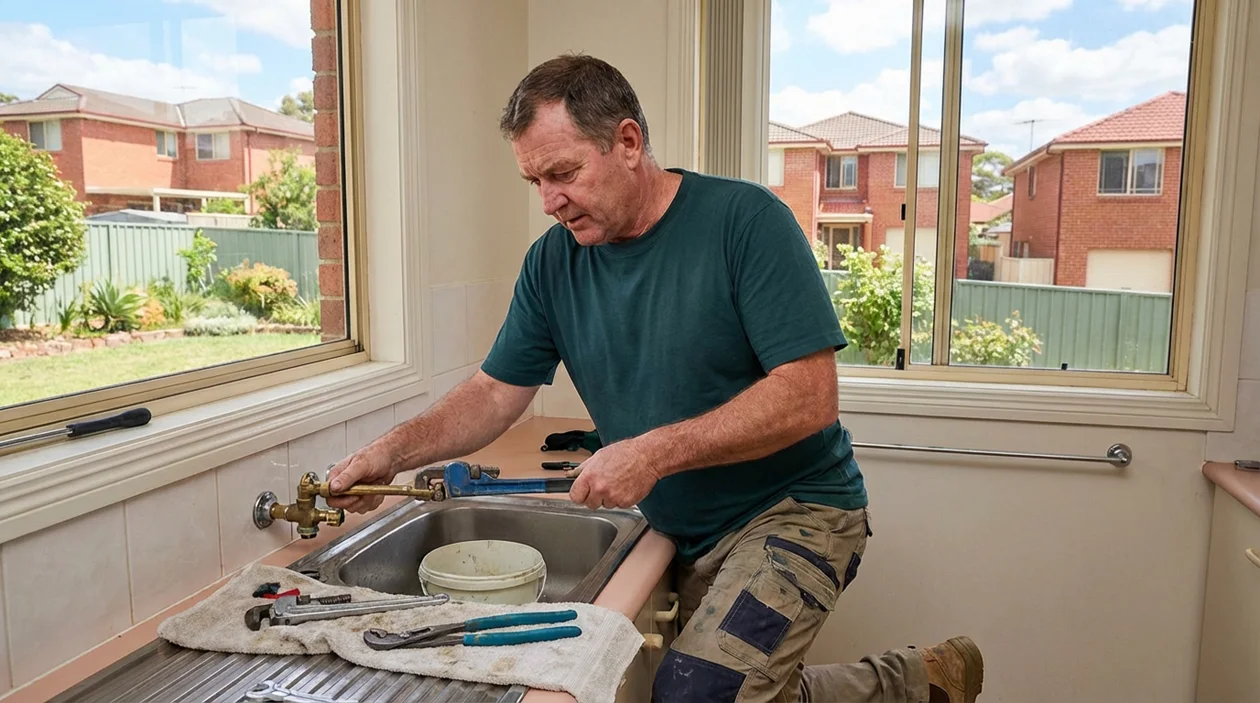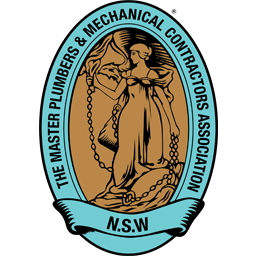Leaky tap getting you down? In NSW, you can tackle many common plumbing problems yourself without breaking any laws or risking your home’s safety. This guide provides the essential knowledge and step-by-step instructions for legal DIY plumbing repairs. We’ll also cover when it’s crucial to call in licensed professionals. Let’s empower you to handle those plumbing issues within your rights confidently!
Before You Begin: Safety and Legal Considerations
DIY plumbing can save money, but safety and legal compliance come first. In NSW, specific plumbing work must be performed by licensed professionals. Attempting these repairs yourself risks severe penalties and can void your home insurance.
Plumbing Regulations in NSW
The Plumbing and Drainage Act 2011 regulates plumbing work in NSW [1]. Under this act:
- Plumbing is considered a licensed trade in NSW.
- Only licensed plumbers can legally carry out most plumbing and drainage work.
- NSW Fair Trading has jurisdiction over plumbing regulation and ensures compliance with the Plumbing Code of Australia.
Restrictions on DIY Plumbing
It is illegal for unlicensed individuals to undertake most plumbing work in NSW. This includes repairing leaky pipes, replacing toilets, installing new toilets, and even some essential plumbing maintenance.
A licensed plumber must do any work involving drinking water systems, sewage lines, hot water systems, or gas fitting.
Gear Up for Success: Essential Tools and Materials
Every DIY plumber needs a reliable toolkit. You don’t need a professional’s arsenal, but having these essentials on hand will make your plumbing adventures smoother:
Tools
- Adjustable Wrench: Your go-to tool for tightening and loosening nuts and fittings of various sizes.
- Pipe Wrench: Used specifically for gripping and turning pipes; essential for stubborn connections.
- Tongue-and-Groove Pliers: Similar to pipe wrenches but with adjustable jaws for gripping larger objects.
- Basin Wrench: Specially designed to reach awkward nuts under sinks.
- Teflon Tape: Used to create a watertight seal on threaded plumbing connections.
- Plunger: The first line of defence against clogged drains.
- Bucket & Rags: Essential for containing spills and messes.
Materials
- Plumber’s Putty: A pliable sealant for sinks, drains, and other plumbing fixtures.
- O-Rings: Small rubber rings that create watertight seals within various plumbing fixtures.
- Washers: Flat, often rubber or fibre discs that prevent water leaks in faucets and valves.
What Plumbing Can I Do Myself in NSW?
While empowering yourself with DIY plumbing skills is great, NSW has strict regulations to protect your safety and property value. Understanding what you can legally do yourself can save you headaches and potential fines.
What you CAN do:
- Repairing Leaky Taps & Toilets: Replacing washers, O-rings, and tightening fittings is fair game. This includes replacing a shower cartridge if your shower is dripping, or learning how to fix a squeaking toilet seat.
- Unclogging Drains: Use a plunger or drain snake to tackle stubborn sinks, showers, or floor wastes.
- Replacing Showerheads: Unscrewing the old one and installing a new one is acceptable.
- Connecting a Washing Machine Hose: You can attach the hose to an existing plumbing point – no new pipework!
- Changing a Tap Washer: A common and simple repair you can confidently tackle.
- Replacing Sanitary Drain Opening Caps: Swapping out these caps is within your DIY scope.
What you CANNOT do:
- Anything involving Gas: This includes installations, repairs, and even connecting a gas BBQ.
- Altering Water or Sewer Lines: This includes modifications, extensions, or new connections to the main water supply or sewerage system.
- Installing or Modifying Backflow Prevention Devices: These devices protect drinking water and require specialised knowledge.
- Hot Water System Work (Beyond Isolation): While you can turn off the water to your system, any repairs or replacements need a professional.
Remember: Use common sense even for these tasks. If you encounter complex issues or aren’t confident, it’s best to call a licensed plumber.
What Are the Penalties for Doing Unlicensed Plumbing Work in NSW?
There are significant penalties for performing unlicensed plumbing work in NSW, including:
- Maximum Fine: The maximum penalty for performing unlicensed plumbing work in NSW is 100 penalty units [2]. As of 2024, one penalty unit in NSW is typically worth around $110, which means the maximum fine could be up to $11,000.
- Continuing Offenses: For continuing offences, additional penalties of up to 50 penalty units may apply for each day the offence continues.
- Corporate Penalties: The maximum penalty for corporations can be higher, up to 200 penalty units in some cases.
Beyond monetary fines, there are other potential consequences for performing unlicensed plumbing work:
- Rectification Orders: The plumbing regulator can issue written directions to repair or rectify non-compliant work.
- Disconnection Orders: In cases where public health is risk, the regulator may order the disconnection of water supply or sanitary systems.
- Inspection Requirements: If proper notification procedures aren’t followed, the regulator may require the uncovering of work for inspection.
- Legal Action: Failure to comply with directions from the plumbing regulator can result in further legal action and penalties.
To avoid penalties, plumbing work in NSW must:
- Be performed by appropriately licensed individuals.
- Comply with the Plumbing Code of Australia and other prescribed standards.
- Use only authorised fittings.
- Be properly notified to the plumbing regulator before commencement.
It’s important to note that these penalties are in place to ensure public safety and maintain high standards in plumbing work across NSW. The severity of the penalties reflects the potential risks associated with improperly performed plumbing work.
Can UK Plumbers Work in Australia?
Yes, UK plumbers can work in Australia, but they must go through several steps to become licensed and qualified to practice their trade. Here’s an overview of the process for UK plumbers to work in Australia:
- UK plumbers must first undergo a skills assessment to have their qualifications and experience recognized in Australia.
- This assessment is typically conducted by Trades Recognition Australia (TRA) or an approved Registered Training Organisation (RTO).
- The assessment involves reviewing qualifications and work experience and may include a practical skills test.
- UK plumbers must obtain an Offshore Technical Skills Record (OTSR) as part of their skills assessment.
- Upon arrival in Australia, they must apply for a Provisional license through the relevant state regulatory body.
- Plumbers commonly have the option of a skilled independent visa (subclass 189) or a Skilled Nominated Visa (subclass 190).
[2] https://legislation.nsw.gov.au/view/whole/html/inforce/current/act-2011-059
[3] https://migrationconsultant.com/australia/trades/plumber/



